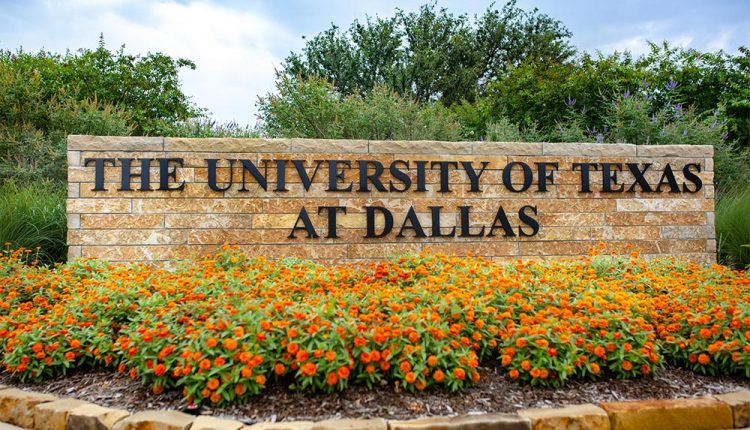University of Texas at Dallas: New Education Degrees Expand UTD’s Training of Future Teachers
The University of Texas at Dallas has added two new bachelor’s degrees in education to prepare greater numbers of students to become classroom teachers.
“We are especially excited about being able to offer these degrees at this time because we are at a critical teacher shortage,” said Dr. Barbara Ashmore, assistant director of student teaching and field experience for the Teacher Development Center in the School of Interdisciplinary Studies.
The Teacher Development Center also is working to help the Richardson Independent School District fill a shortage of substitute teachers by making it possible for students to register with the district to become substitutes.
The new Bachelor of Arts in education and Bachelor of Science in education degrees, recently approved by the Texas Higher Education Coordinating Board, give students the opportunity to choose from a range of specialties, including early childhood through sixth grade core subjects; fourth through eighth grade core subjects; fourth through eighth grade English, language arts and reading; fourth through eighth grade social studies, math or science; and seventh through 12th grade social studies with concentrations in economics, geography, history or government. The degrees are offered through the School of Interdisciplinary Studies.
The number of newly certified teachers in Texas has decreased steadily over the past several years, while increased teacher departures during the COVID-19 pandemic has exacerbated the problem. Kindergarten and elementary public school teachers earn an average of $60,000 annually, while high school teachers earn an average of $62,870, according to the Bureau of Labor Statistics.
Jubilee Uzoma was among the first to enroll in the new education degree plan. Uzoma said she was inspired to consider a teaching career because she wants to help students facing challenges such as poverty. She said she grew up in a low-income family and will never forget the role teachers played in her life.
“I remember how my teachers, simply by caring about me and being there for me, made it all better,” Uzoma said. “I just hope I could be able to do that for a student one day.”
“If you want to leave your mark on the world, if you want some tiny piece of immortality, you reach out and touch the future, and what better way than educating a child so they can grow up to be whatever they want to be.”
Dr. Barbara Ashmore, assistant director of student teaching and field experience for the Teacher Development Center
The new education degrees augment teacher preparation programs that UT Dallas has offered for nearly 50 years. Since 1975, the Teacher Development Center has prepared more than 4,000 students for teaching careers by providing education coursework, field experience and preparation for state exams, with a 100% passing rate. Through the center, students have had — and will continue to have — the option of earning their teacher certifications as part of any bachelor’s degree at the University. In addition, since 2008 the School of Natural Sciences and Mathematics has offered a program called UTeach Dallas that allows students to combine a degree in a science or technical field with a certification to teach mathematics, science and computer science at the secondary level.
Last fall, the Toyota USA Foundation donated $750,000 to the University to create a scholarship program designed to increase the number of certified science, technology, engineering and mathematics teachers in the Dallas Independent School District. The UT Dallas Teaching Scholars Program provides annual awards of $10,000 for up to three years to 20 UT Dallas students who plan to become teachers.
Ashmore said she hopes the new major and scholarships will encourage more students to study education.
“If you want to leave your mark on the world, if you want some tiny piece of immortality, you reach out and touch the future, and what better way than educating a child so they can grow up to be whatever they want to be,” Ashmore said. “None of us got to where we are without a K-12 teacher.”

